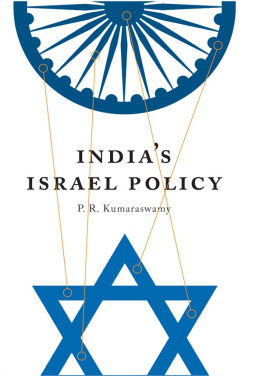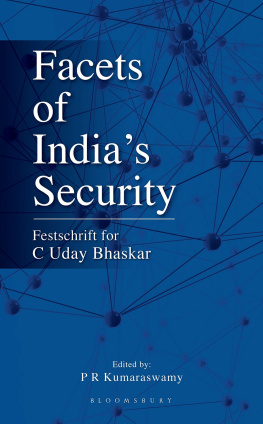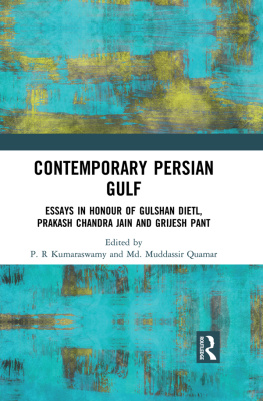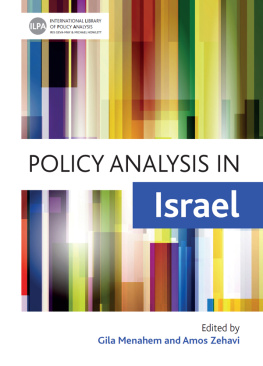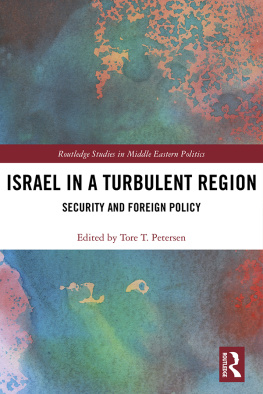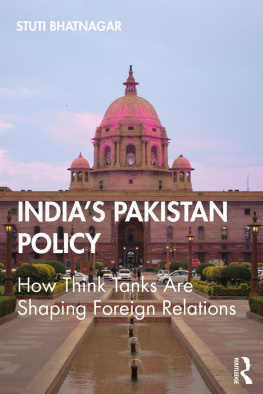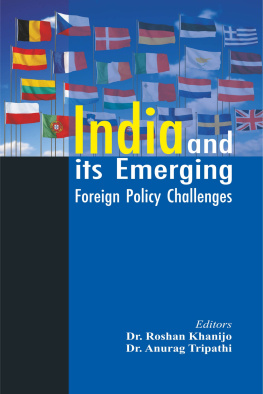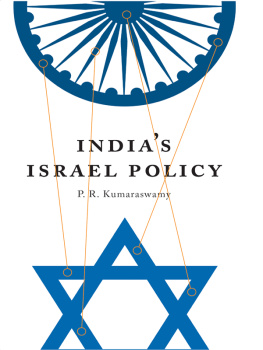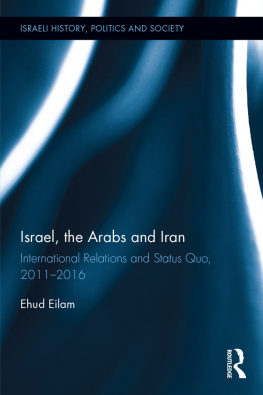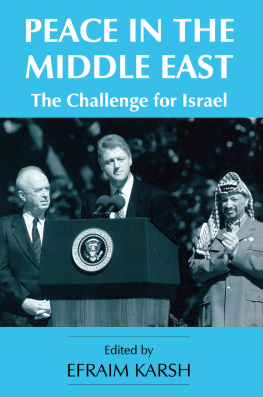I have nothing to lose except my obscurity. That was the only answer of mine that would satisfy Netanel Lorch, Israels military historian. At a small farewell lunch in the Maiersdorf Faculty Club at the Hebrew University of Jerusalem, Lorch, who had served in Sri Lanka, wondered whether I would be as critical once I returned to India. That promise, which I made in October 1988, kept me going.
It is my guru, Professor M. S. Agwani, who, in his own intimidating style, made me a serious student of the Middle East. It was under his supervision that I completed my doctorate on the subject. Studying under him remains an enduring and memorable experience for me.
I had the good fortune to have had teachers, especially Professors K. R. Singh, Gopalji Malviya, Sadanand Patra, and A. H. H. Abidi, who showered me with great patience, encouragement, and abiding personal interest.
Professor Subramanian Swamys provocative November 1982 article in Sunday kindled my interest in and inspired me to study the prolonged absence of Indo-Israeli relations. He found time in his busy schedule to go over my manuscript and offer critical comments.
A number of leading figures in both India and Israel shared their knowledge and wisdom. They include President Chaim Herzog and Morarji Desai, the former prime minister. Starting from my first meeting in July 1988, the late Walter Eytan spent hours in clarifying many of my doubts. Yaacov Shimoni, the former Israeli diplomat, kindly allowed me access to his private papers.
Over the years I have had the fortune of interacting with innumerable scholar-friends, including Ashok Kapur, Avraham Altman, Avraham Sela, Barry Jacobs, Barry Rubin, Ben-Ami Shillony, C. Raja Mohan, Dan and Lihi Laor, David Shulman, Edy Kaufman, Efraim Inbar, Efraim Karsh, Eli Joffee, Gerald Steinberg, Gideon Shimoni, Hamid Ansari, Jasjit Singh, M. L. Sondhi, Mark Heller, Moshe Maoz, Moshe Yegar, Naomi Chazan, Nissim Rejwan, Reuven Kahane, Steve Cohen, V. Narayana Rao, Yezid Sayigh, Yitzhak Galnoor, and Yitzhak Shichor. In times of crisis, Sreeradha Datta has always been around and smilingly spent long hours going over many of my academic writings.
I had the privilege of meeting a host of Indian diplomats who served in Israel and who shared their knowledge with me. The kindness and generosity of Anita Nayar, N. A. Prasad, Pinak Chakravarthy, Deepak Kaul, P. K. Singh, Ranjan Mathai, Raminder Jassel, Shiv Shankar Menon, Subrata Das, and Virendra Gupta are second only to their professionalism and passion for promoting bilateral ties. Despite his busy schedule, Ambassador Arun Kumar Singh went over my draft and offered valuable comments on post-1992 developments.
Over the years, I have interacted with a number of Israeli diplomats, especially David Danielle, David Granit, David Matnai, Eliyahu Elath, Mark Sofer, Netanel Lorch, Oded Ben-Hur, Reuven Dafni, Ruth Kahanoff, Yossef Hassin, and Zev Sufott. Innumerable persons shared their knowledge and clarified some of the nuances of bilateral relations: Ari Rath, Erza Kolet, Judith Roumani, M. R. Masani, Madhu Limaye, Yoram Mayorek, and Yuhuda Paz. In the late 1980s, I interacted with a number of Palestinian figures, including Hanna Sinora, Lesly Abu-Katar, Manual Hassassain, Mehdi Abdul Hadi, and Nafez Assaily.
I wish to express my sincere thanks to the staff of the following libraries and institutions for their help: in Jerusalem, Al Fajr (daily), the Central Zionist Archives, the Israel State Archives, and The Jerusalem Post archives. In India: the American Studies Research Center, Hyderabad; the Indian Council of World Affairs; the Institute for Defense Studies and Analyses; Jawaharlal Nehru University; the Lok Sabha Secretariat; the National Archives of India; and the Nehru Memorial Museum and Library, all in New Delhi. The library staff of the Harry S. Truman Research Institute for the Advancement of Peace at the Hebrew University of Jerusalem, especially Amnon, Avi, Cecil, Riccardo, and Tirza, offered me a good working environment. The acrimonious debates at the Institute for Defense Studies and Analyses, where I briefly worked, influenced my thinking on contemporary developments in the Middle East.
It was my field trip to Israel in 1988, which was generously sponsored by Jawaharlal Nehru University, that opened up my horizon. I am thankful to the Truman Institute for being my academic home during my long stays in Israel.
When I was down and out, numerous friends have provided encouragement and moral support. They include Atul Kumar, Atul Mishra, G. V. C. Naidu, Liat Peretz, Narasaiah, P. Ventakeswaran, Pathaks, Rajesh and Raji, Ranjita Das, Sima Baidya, T. Sreedhar Rao, Uri and Navah Ramon, V. Rajagopal, and V. Ramakrishanan.
Since joining JNU in 1999, my graduate students have given me comfort and stimulation and have often enabled me to sharpen my understanding of the Middle East. Special mention is reserved for Bhupendra Kumar Singh and Khinv Raj, who helped me solve innumerable problems along the way. On numerous occasions, my colleagues, especially Girijesh Pant, Gulshan Dietl, and P. C. Jain, gave me a helping hand.
Since the late 1980s, I have enjoyed stimulating intellectual exchanges with my peers, especially Professor Irene Eber. In between her moving house, proofreading, and organizing conferences, she painstakingly went over my manuscript. Master and Naomi have made many of my weekends a delightful diversion. For nearly two decades, my friend D. Shyam Babu has remained a great source of inspiration, intellectual honesty, and professionalism.
When many others were reluctant, Anne Routon had faith in me and saw this manuscript through its stages of publication. She made working with Columbia University Press a plea sure. Thanks, my friend. My gratitude also goes to my three anonymous reviewers; their inputs have made this a better book. Thanks also to Robert Fellman for his immensely detailed and very thoughtful copyediting.
My parents-in-law and Lin Xiaozhong and Lin Tong have been generous with their kindness and affection.
All my life, I have enjoyed the love and affection of my grandparents, my late mother, Sreedhar, Jayanthi, and Ravi Mama. Appa has been my friend, philosopher, and guide and, despite all my limitations and shortcomings, he has retained his abiding faith in me.

